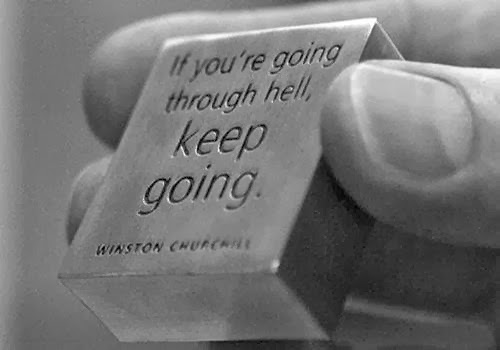The current obstacles are the foundation of your future success. There are some persons who didn’t give up no matter what. Thus, if you are failing, keep on going
Albert Einstein, physicist: Most of us take Einstein’s name as synonymous with genius, but he didn’t always show such promise. Einstein did not speak until he was four and did not read until he was seven, causing his teachers and parents to think he was mentally handicapped, show and anti-social. Eventually, he was expelled from school and was refused admittance to the Zurich Polytechnic School. It might have taken him a bit longer, but most people would agree that he caught on pretty well in the end, winning the Nobel Prize and changing the face of modern physics.
Walt Disney, founder of The Walt Disney Company: Today Disney rakes in billions from merchandise, movies and theme parks around the world, but Walt Disney himself had a bit of rough start. He was fired by a newspaper editor because, “he lacked imagination and had no good ideas.” After that, Disney started a number of businesses that didn’t last too long and ended with bankruptcy and failure. He kept plugging along, however, and eventually found a recipe for success that worked.
Isaac Newton, scientist: Newton was undoubtedly a genius when it came to math, but he had some failings early on. He never did particularly well in school and when put in charge of running the family farm, he failed miserably, so poorly in fact that an uncle took charge and sent him off to Cambridge where he finally blossomed into the scholar we know today.
Thomas Edison, inventor: In his early years, teachers told Edison he was “too stupid to learn anything.” Work was no better, as he was fired from his first two jobs for not being productive enough. Even as an inventor, Edison made 1,000 unsuccessful attempts at inventing the light bulb. Of course, all those unsuccessful attempts finally resulted in the design that worked.
Henry Ford, founder of ford Motor: While Ford is today known for his innovative assembly line and American-made cars, he wasn’t an instant success. In fact, his early businesses failed and left him broke five times before he founded the Ford Motor Company.
Soichiro Honda, founder of Honda Motor: The billion dollar business that is Honda began with a series of failures and fortunate turns of luck. Honda was turned down by Toyota Motor Corporation for a job after interviewing for a job as an engineer, leaving him jobless for quite some time. He started making scooters of his own at home, and spurred on by his neighbours, finally started his own business.
Akio Morita, founder of Sony Corporation: You may not have heard of Morita but you’ve undoubtedly heard of his company, Sony. Sony’s first product was a rice cooker that unfortunately didn’t cook rice so much as burn it, selling less than 100 units. This first setback didn’t stop Morita and his partners as they pushed forward to create a multi-billion dollar company.
Orville and Wilbur Wright (Wright Brothers), airplane inventors: These brothers battled depression and family illness before starting the bicycle shop that would lead them to experimenting with fight. After numerous attempts at creating flying machines, several years of hard work, and tons of failed prototypes, the brothers finally created a plane that could get airborne and stay there.
Winston Churchill, politician, UK: This Nobel Prize-winning, twice-elected Prime Minister of the UK wasn’t always as well regarded as he is today. Churchill struggled in school and failed the sixth grade. After school he faced many years of political failures, as he was defeated in every election for public office until he finally became the PM at the age of 62.
Vincent Van Gogh, artist: During his lifetime, Van Gogh sold only one painting, and this was to a friend and for a very small amount. While Van Gogh was never a success during his life, he plugged on with painting, sometimes starving to complete his over 800 known works.
